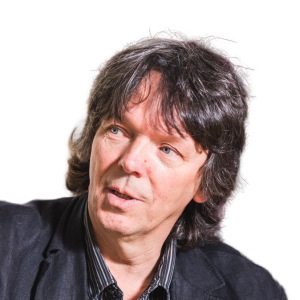
Dr. Jörg Fachner
BIO
Dr. Jörg Fachner (Doctor of Medical Science and MSc in Education) is Professor of Music, Health and the Brain and Co-Director of the Cambridge Institute of Music Therapy Research at Anglia Ruskin University in Cambridge, UK. Working over 25 years in music therapy (MT), psychology and medical research projects in Germany and Finland, he is a specialist for translational research topics in the social, medical and music sciences. He is keen to use technology to investigate the social neuroscience of music (therapy) and has secured over 3 millions of UK research council funding (EPSRC/AHRC) in the UK and Austria (CDG) to realise a MT specific NeuroLab setting adapting to MT practice.
As a situationalist his pragmatic approach is to capture the real-world idiography of the therapy process with continuous multimodal data streams, including ECG / EEG hyperscanning to analyse the emergence of change in Moments of (therapeutic) Interest (MOI) and by this to add (and analyse) contextualised data to what is otherwise considered ‘anecdotal evidence’. The first MT hyperscanning paper demonstrating the importance of MOIs reached an Altmetric score of 744, i.e. is in the highest 5% of Frontiers, https://doi.org/10.3389/fpsyg.2019.01561
Dr. Clemens Maidhof is a Senior Research Fellow at the Cambridge Institute for Music Therapy Research, Anglia Ruskin University in Cambridge, UK. Previously, he worked at the University of Cologne in Germany, the Finnish Centre of Excellence for Interdisciplinary Music Research in Helsinki/ Jyvaskyla, and the Max Planck Institute for Human Cognitive and Brain Sciences in Leipzig, Germany. He holds an MA in Musicology from the University of Cologne and a PhD in Psychology from the Freie Universität Berlin, Germany.
Clemens’ research interests lie in the cognitive, social, and affective neurosciences of music. He has published papers on error monitoring in music performance, utilizing EEG, 3D motion capture, and musical (MIDI) data. Additionally, he has conducted research on the neural mechanisms underlying syntactic processing of music and language, and the effects of attention on these processes. His current research focuses on the neural dynamics underlying music improvisation and social interaction during therapy. For this, he combines music therapy research with approaches from social neuroscience, such as hyperscanning.
